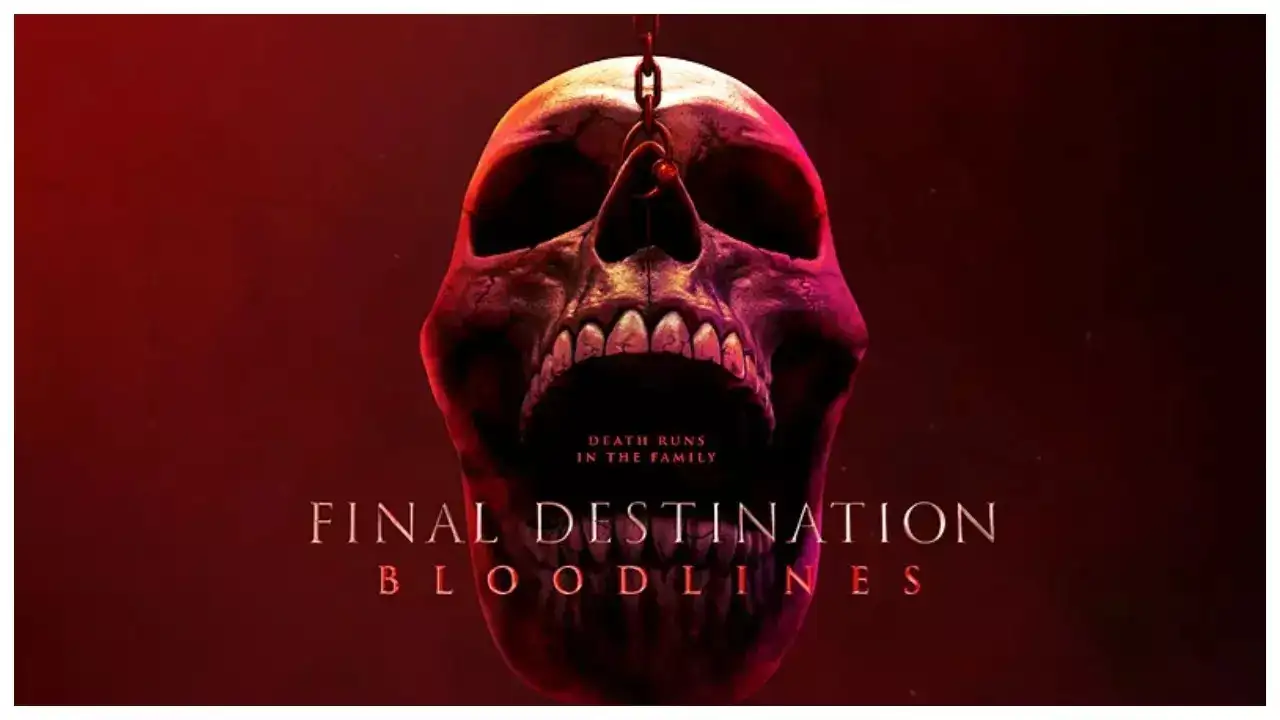Final Destination: Bloodlines arrives with the weight of a legacy behind it. As the sixth installment in a franchise known for its inventive kills and elaborate death sequences, the film takes a surprisingly thoughtful turn by injecting emotional weight and familial bonds into the narrative. For the first time, we’re not just watching strangers or loosely connected acquaintances cheat death; we’re watching a family torn apart by inevitability. That shift brings both depth and vulnerability to a franchise that has long leaned on spectacle. The result? A film that dares to be different, even if it doesn’t always succeed.
Direction
The director clearly had a vision: make death feel more intimate, more personal. And in many ways, that works. Family has never been the heart of the Final Destination films. We’ve seen friends, co-workers, classmates, and even total strangers get stalked by death, but never people bound by love, blood, and shared memories. That premise changes everything. The stakes feel higher. The grief cuts deeper. And the paranoia feels more real.
The director leans into this emotional edge with some success. One particular scene involving two siblings stands out—not because of how someone dies, but because of how they live in that moment. There’s hesitation, desperation, and heartbreak. These are the quiet moments that give Bloodlines more substance than its predecessors. Unfortunately, those moments are too few. The film often can’t resist slipping back into franchise tropes, losing the emotional thread in favor of cheap thrills.
Screenplay
The screenplay attempts a tricky balance: maintain the structure of a Final Destination film while layering in real emotional stakes. In some scenes, it works beautifully. The script slows down enough to let characters grieve, process, and fear not just death, but the idea of losing someone they love. However, it’s a script that struggles with consistency. Dialogue swings from genuinely touching to awkward and forced. The emotional core occasionally gets overshadowed by exposition dumps and clunky transitions.
Still, there are commendable efforts to flesh out the characters. We understand their fears, we see their confusion, and in the better moments, we feel their pain. The thematic focus on family legacy, protection, and sacrifice brings something new to the franchise. If only the film had the confidence to trust those elements more and lean less on formula.
Acting
The performances are a mixed bag. Some cast members deliver raw, affecting portrayals, particularly in scenes of grief and familial conflict. The film’s emotional highlights are driven by this sincere acting effort. But there’s also a lingering feeling that many of these actors belong on television, not the big screen. Certain line deliveries lack punch, and some emotional beats fall flat simply because the performances can’t quite carry the weight they’re supposed to.
This inconsistency hurts the overall immersion. While the actors do establish some believable chemistry, especially among the family members, the lack of star power or breakout performances makes it difficult to stay invested in the quieter moments.
Music / BGM
Sound design has always been a vital part of horror, and unfortunately, Bloodlines fumbles here. While the background score does its job in building suspense, many of the impactful audio cues don’t land as they should. Screams don’t pierce, crashes don’t rumble, and some death scenes feel oddly muted. It’s a missed opportunity, especially in a franchise where timing and sound are critical to audience reaction.
Rewatchability
For fans of the franchise, Final Destination: Bloodlines offers enough innovation to warrant a watch. The family-focused premise and a few emotionally resonant moments set it apart from previous entries. However, once those elements are absorbed, there’s little incentive to revisit. The film suffers from inconsistent tone, uneven pacing, and forgettable set pieces. The over-reliance on CGI also reduces the visceral thrill that defined earlier films. This isn’t a popcorn slasher with rewatchable carnage; it’s more of a one-time contemplative ride.
Cultural/Social Impact
Where Bloodlines does earn its place is in how it attempts to evolve the franchise. By choosing to explore how death’s shadow affects a family, the film opens up new thematic ground. The idea of inherited trauma, generational fear, and protective instincts adds richness that fans haven’t seen before in this series. It may not break new ground in the horror genre at large, but it suggests a maturity and emotional intelligence that could reshape what we expect from Final Destination moving forward.
Final Verdict
Final Destination: Bloodlines is a bold yet imperfect revival. It takes risks by centering emotion over gore, but struggles with execution in both visuals and tone. Still, the attempt to reframe the franchise with a human core is admirable. It’s not the best Final Destination film—not by a long shot—but it might be the most thought-provoking.

